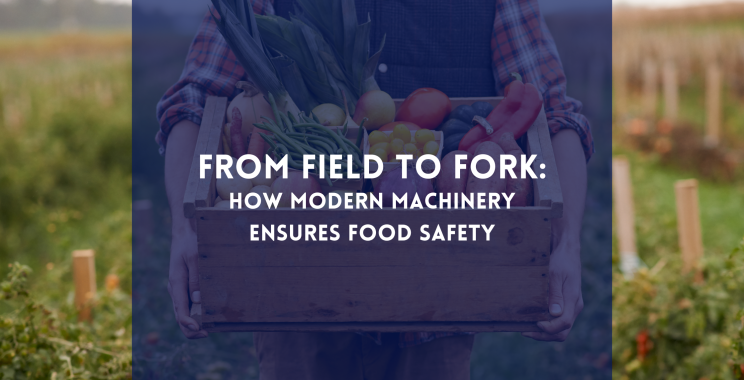From Field to Fork: How Modern Machinery Ensures Food Safety
In today’s interconnected world, ensuring food safety is paramount. From the fields where crops are grown to the forks where they’re consumed, every step of the food production process must adhere to rigorous standards to safeguard public health. Modern agricultural machinery plays a crucial role in this endeavour, enabling farmers to implement robust safety protocols and ensure the integrity of the food supply chain. In this blog post, we’ll explore how modern machinery is transforming food safety practices, while also keeping in mind the search engine optimization (SEO) keyword “farm machinery for sale.”
1. Precision Application of Inputs
Modern agricultural machinery allows for precise application of inputs such as fertilizers, pesticides, and herbicides. By utilizing advanced technologies like GPS guidance systems and variable rate technology, farmers can ensure that inputs are applied only where needed, minimizing the risk of overuse or contamination. This targeted approach not only enhances crop health and yields but also reduces the environmental impact of agricultural practices, contributing to overall food safety.
2. Efficient Harvesting and Handling
Efficient harvesting and handling are critical steps in maintaining food safety from farm to fork. Modern machinery streamlines these processes, reducing the risk of contamination and spoilage. For example, automated harvesting equipment can quickly and gently harvest crops, minimizing damage and exposure to pathogens. Similarly, specialized handling equipment such as conveyors and sorting systems ensure that harvested produce is carefully inspected and transported to storage or processing facilities under optimal conditions.
3. On-Farm Processing and Packaging
On-farm processing and packaging have become increasingly common as farmers seek to add value to their products and meet consumer demand for fresh, locally sourced foods. Modern machinery allows farmers to safely process and package their products on-site, reducing the need for off-farm transportation and handling. From washing and sanitizing equipment to vacuum sealing and labeling machines, these tools ensure that food is prepared and packaged under hygienic conditions, minimizing the risk of contamination.
4. Cold Chain Management
Maintaining the cold chain is essential for preserving the quality and safety of perishable foods from the point of harvest to consumption. Modern refrigeration and storage equipment play a vital role in this process, ensuring that products are kept at the proper temperature throughout transportation and storage. From walk-in coolers to refrigerated trucks, these technologies help prevent bacterial growth and spoilage, safeguarding the integrity of the food supply chain.
5. Traceability and Transparency
Traceability and transparency are increasingly important aspects of food safety and consumer confidence. Modern machinery enables farmers to track and record critical data throughout the production process, from planting and harvesting to processing and distribution. By implementing traceability systems that utilize barcode scanning, RFID technology, and cloud-based software, farmers can quickly trace the origin of products and respond to potential safety issues, enhancing accountability and trust in the food supply chain.
In conclusion, modern agricultural machinery plays a vital role in ensuring food safety from field to fork. By facilitating precision application of inputs, efficient harvesting and handling, on-farm processing and packaging, cold chain management, and traceability and transparency, these technologies help farmers meet rigorous safety standards and protect public health. As the demand for safe and sustainable food continues to grow, investing in modern machinery becomes increasingly essential for farmers looking to maintain a competitive edge in today’s marketplace.
Tags: farm machinery, farming, farm tips

